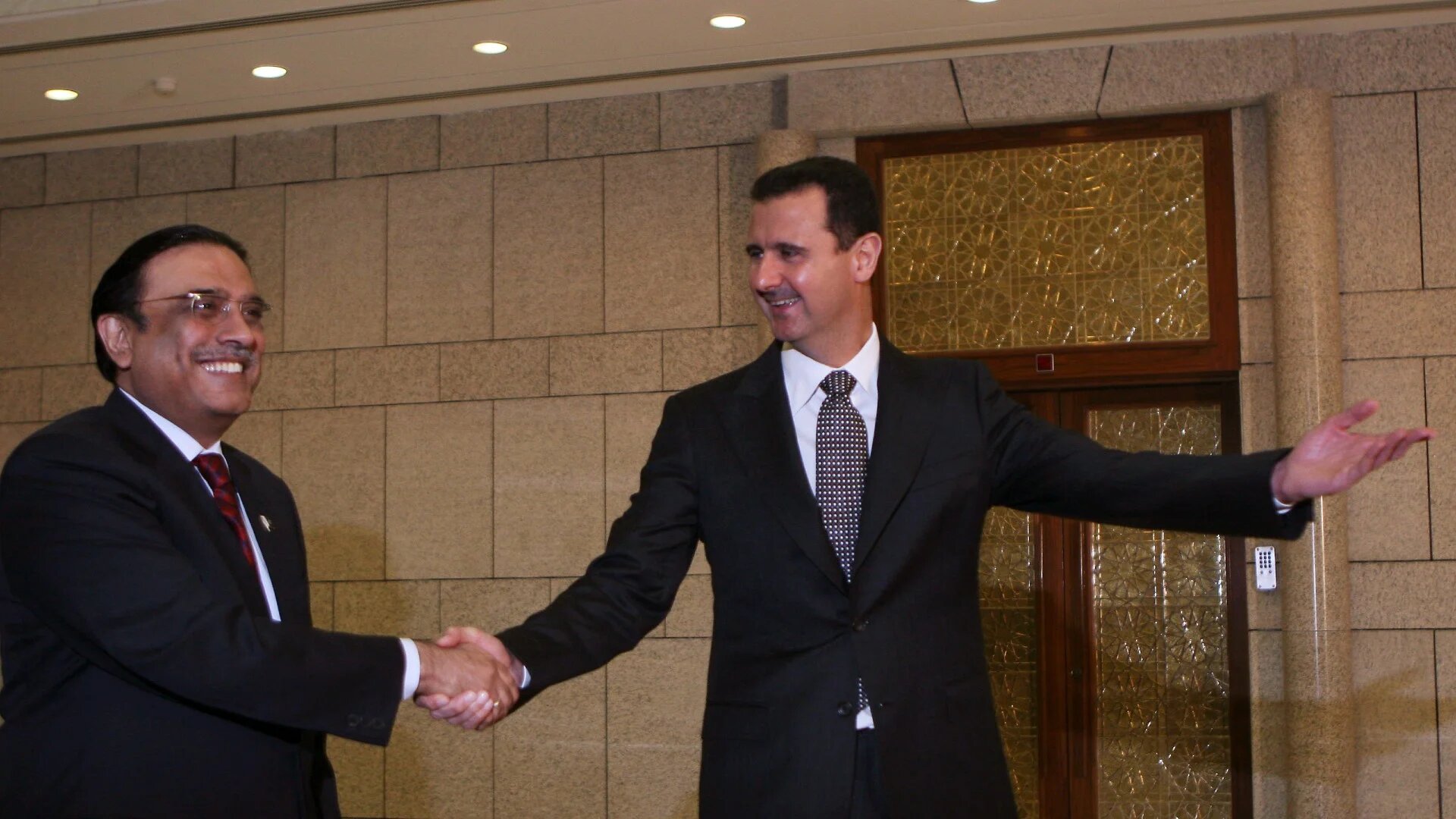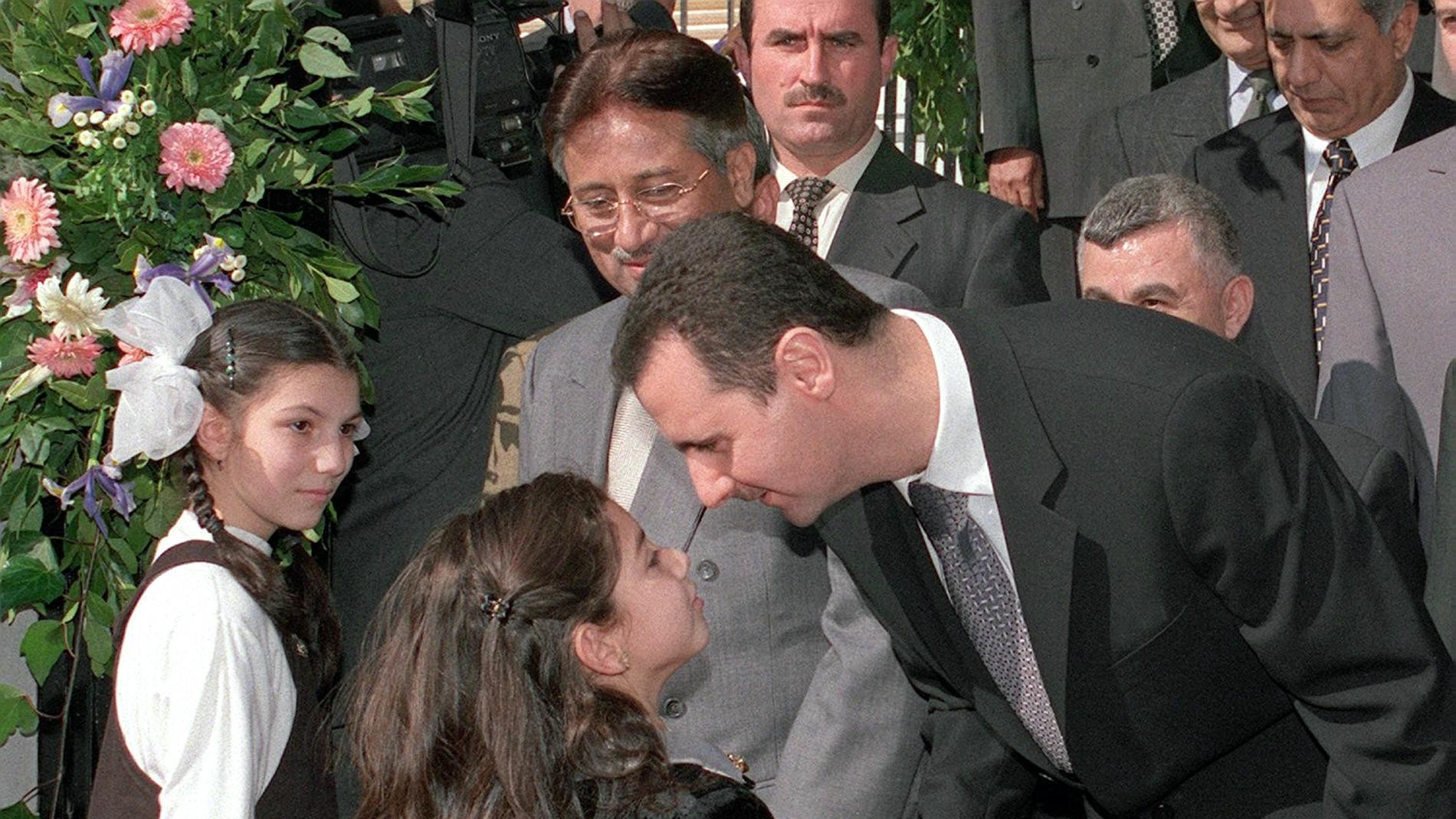Since the late 1940s, when both countries gained independence from their respective colonizers, Syria and Pakistan have had a somewhat troubled relationship. There were periods when both countries worked closely, thanks to ties between the Bhutto and Assad families, and there were times, especially during the early days of the Syrian revolution, when Pakistan refrained from taking any diplomatic position, viewing the conflict as an internal Syrian matter. However, some Pakistanis ended up joining various armed groups in Syria.
But this is certainly not the full extent of Pakistan’s diplomatic ties with the Syrian Republic. Throughout the decades long Arab-Israeli tensions, Pakistan remained a vocal opponent of the Israeli regime and consistently advocated for the establishment of an independent Palestinian state, a diplomatic stance that brought the regimes in Islamabad and Damascus closer together. During the Yom Kippur War, Pakistan’s Prime Minister Zulfikar Ali Bhutto sought to strengthen ties with the Arab world by sending Pakistani volunteers to support Egypt and Syria.
In a meeting with Syrian President Hafez al-Assad, Bhutto pledged that a Pakistani air brigade would be ready to defend Damascus in the event of an Israeli invasion. Among the volunteers, Flight Lieutenant Arif Manzoor served as squadron leader for the Pakistani pilots assigned to the Syrian Air Force. He adopted the call sign “Shahbaz” for their formation, symbolizing speed and courage.
Even after the revolution, when the Assad regime was diplomatically isolated in the Islamic world, as Türkiye, Saudi Arabia, and Qatar took an aggressive anti-Assad stance, Pakistan kept several diplomatic channels open with Damascus, never openly supporting the revolution or showing any clear partisanship.

In July 2021, Syrian Education Minister Darem Tabbaa signed a protocol allowing Syrian students at the Pakistan International School in Damascus to obtain qualifications from the University of Cambridge. The signing ceremony, jointly organized with the Pakistani embassy, was personally overseen by Syrian Foreign Minister Faisal Mekdad, who stated:
“We are also working to deepen bilateral relations between the two countries through other steps in the scientific and cultural fields.”

Following this, the two nations agreed to exchange information and expertise in designated areas of cooperation, paving the way for reciprocal visits by performers, artists, writers, and teachers to participate in conferences, symposia, and seminars. Diplomatic engagement quickly expanded, with regular ministerial visits and delegations focusing primarily on education but also extending into defence and economic collaboration. Pakistan has supported Syria’s sugar, cement, fertiliser, and paper production sectors.
The COVID-19 pandemic also became a catalyst for closer ties. Pakistan was the second country, after China, to deliver medical aid to Syria, sending 250,000 masks and thousands of pieces of protective equipment. In October 2021, the two countries took another step in strengthening their relationship when Syrian and Pakistani commercial airlines launched direct flights between them.
Diplomatic Engagement After the Ouster of Assad
Following the December 2024 ouster of Bashar al-Assad, Pakistan adopted a cautious yet supportive stance toward Syria’s new leadership. Islamabad emphasized that Syria’s future should be determined by Syrians themselves, through an inclusive political process free from foreign interference, while reaffirming its commitment to Syria’s sovereignty, unity, and territorial integrity.
In early 2025, Pakistani diplomats at the UN called for lifting unilateral sanctions on Syria, warning that they harm civilians and hinder reconstruction. They urged the international community to support the transition and address widespread poverty.Direct bilateral engagement resumed in 2025. In February, Pakistan’s chargé d’affaires in Damascus met Syrian ministers to expand cooperation in education and IT, including the reactivation of a Pakistan-built technology centre. In June, a high-level Pakistani delegation met Syria’s new foreign minister to discuss enhancing ties, particularly in education, agriculture, and trade. Both sides agreed to increase exchanges and revive pre-war economic initiatives.
Economically, talks have focused on boosting trade, investment, and technical assistance, particularly in agriculture, industry, and education. While no new flights or major trade volumes have been announced, both governments view economic revival as a key area of collaboration. Security cooperation remains limited. Pakistan continues to oppose the presence of foreign fighters in Syria. There have been no new defence deals, with security engagement largely confined to counterterrorism under multilateral frameworks.
Cultural and educational links remain strong. Pakistan’s embassy in Damascus actively promotes people-to-people ties, hosts national celebrations, and offers scholarships for Syrian students. The Pakistan International School in Damascus continues to operate, and further cultural exchanges are planned.
Pathways for Strategic, Economic, and Cultural Cooperation
The ouster of Bashar al-Assad and the success of the Syrian Revolution have presented Islamabad with a pivotal opportunity to recalibrate its diplomacy toward Syria. This shift is particularly timely given that Pakistan’s key regional allies, Türkiye, Saudi Arabia, and Qatar, are now fully invested in supporting the new regime in Damascus. Such alignment could open fresh avenues for cooperation in security, the economy, and shared cultural initiatives, especially considering that Syrian territory has been a hub of Islamic civilization for the past 14 centuries.
Economically, Pakistan could expand its trade footprint in Syria by exporting textiles, pharmaceuticals, agricultural machinery, and IT services, while importing Syrian olive oil, citrus fruits, and phosphates. Joint ventures in cement, fertiliser, and food processing could further aid Syria’s post-war reconstruction and stimulate mutually beneficial economic growth. In addition, infrastructure development projects, such as rehabilitating industrial plants or assisting in energy sector upgrades, could provide long-term economic dividends for both nations.
On the military and security front, cooperation could focus on training Syrian officers at Pakistani military academies, sharing counterterrorism expertise, and supplying non-lethal defence equipment such as communications systems, protective gear, and medical support. Collaborative initiatives in de-mining operations, border security management, and intelligence-sharing under regional security frameworks could enhance stability without dragging Pakistan into Syria’s internal political disputes.
Culturally, Pakistan and Syria could expand academic exchanges, archaeological preservation projects, and joint Islamic heritage initiatives, deepening people-to-people connections and reinforcing historical bonds. Such multi-layered engagement would not only strengthen bilateral trust but also support Syria’s stability, create new markets for Pakistani industries, and allow Islamabad to play a constructive role in the region without overextending itself into local conflicts.
The views expressed in this article are the author’s own. They do not necessarily reflect the editorial policy of the South Asia Times.







